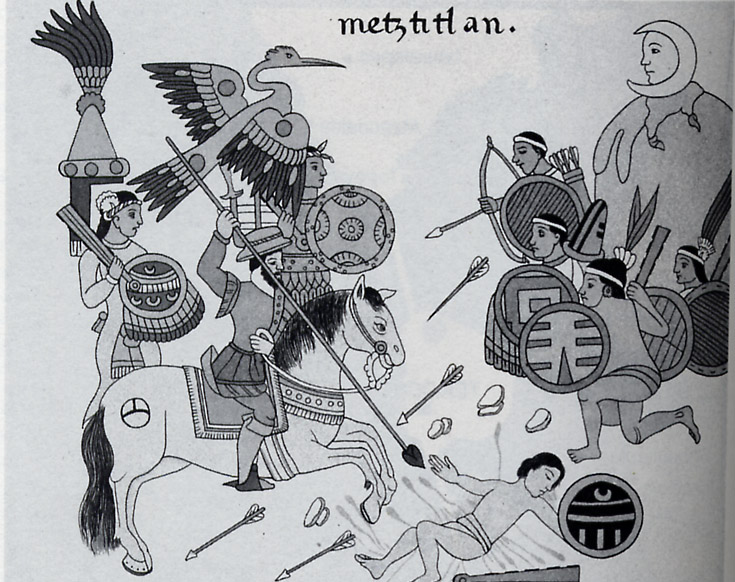|
Ciudades Desiertas
''Ciudades desiertas'' (''Empty Cities'' or ''Deserted Cities'') is a 1982 novel written in Spanish by Mexican author José Agustín. It is a mature work set in a small city in the United States around the early 1980s. Plot summary ''Ciudades desiertas'' is the story of Susana, a female Mexican writer fleeing her home to attend an international workshop in the United States, leaving her husband Eligio behind and completely unaware of her whereabouts. A hot-tempered intellectual with a somewhat cynical and misanthropic sense of humor, he works his way to catch up with his wife, arguing to have only done so to find out why exactly Susana left. The book's title seems to be derived from the couple's separate observations in regards to the apparent lack of movement around Arcadia, where the workshop takes place. They almost immediately suffer a cultural shock upon their arrival, although they are already well acquainted with the typical American lifestyle. The American residents, w ... [...More Info...] [...Related Items...] OR: [Wikipedia] [Google] [Baidu] |
José Agustín
José Agustín Ramírez Gómez (19 August 1944 – 16 January 2024) was a Mexican novelist, short story writer, essayist and screenwriter. Publishing under the pen name José Agustín, he was considered one of the most influential and prolific Mexican writers of the second half of the 20th century. Life and career José Agustín was born in Acapulco, Guerrero, on 19 August 1944. He studied classical literature at the School of Philosophy and Letters of the National Autonomous University of Mexico (UNAM), film direction at the Centro Universitario de Estudios Cinematográficos (CUEC) and dramaturgy at the Instituto Nacional de Bellas Artes y Literatura (INBA). Agustín participated in Juan José Arreola's writers' workshop from 1962 to 1965, where he wrote his first novel, '' La tumba'' ("The Tomb"), when he was nineteen years old. The novel was the brief but provocative story of a Mexican upper-class teen, deemed indecent by the public but gathering praise from older writer ... [...More Info...] [...Related Items...] OR: [Wikipedia] [Google] [Baidu] |
Cultural Shock
Culture shock is an experience a person may have when one moves to a cultural environment which is different from one's own; it is also the personal disorientation a person may feel when experiencing an unfamiliar way of life due to immigration or a visit to a new country, a move between social environments, or simply transition to another type of life. One of the most common causes of culture shock involves individuals in a foreign environment. Culture shock can be described as consisting of at least one of four distinct phases: honeymoon, negotiation, adjustment, and adaptation. Common problems include: information overload, language barrier, generation gap, technology gap, skill interdependence, formulation dependency, homesickness (cultural), boredom (job dependency), ethnicity, race, skin color, response ability ( cultural skill set). There is no true way to entirely prevent culture shock, as individuals in any society are personally affected by cultural contrasts differen ... [...More Info...] [...Related Items...] OR: [Wikipedia] [Google] [Baidu] |
Lifestyle (sociology)
Lifestyle is the interests, opinions, behaviours, and behavioural orientations of an individual, group, or culture. The term " style of life" () was introduced by Austrian psychologist Alfred Adler in his 1929 book, ''The Case of Miss R.'', with the meaning of "a person's basic character as established early in childhood". The broader sense of lifestyle as a "way or style of living" has been documented since 1961. Lifestyle is a combination of determining intangible or tangible factors. Tangible factors relate specifically to demographic variables, i.e. an individual's demographic profile, whereas intangible factors concern the psychological aspects of an individual such as personal values, preferences, and outlooks. A rural environment has different lifestyles compared to an urban metropolis. Location is important even within an urban scope. The nature of the neighborhood in which a person resides affects the set of lifestyles available to that person due to differences ... [...More Info...] [...Related Items...] OR: [Wikipedia] [Google] [Baidu] |
Latin America
Latin America is the cultural region of the Americas where Romance languages are predominantly spoken, primarily Spanish language, Spanish and Portuguese language, Portuguese. Latin America is defined according to cultural identity, not geography, and as such it includes countries in both North and South America. Most countries south of the United States tend to be included: Mexico and the countries of Central America, South America and the Caribbean. Commonly, it refers to Hispanic America plus Brazil. Related terms are the narrower Hispanic America, which exclusively refers to Spanish-speaking nations, and the broader Ibero-America, which includes all Iberic countries in the Americas and occasionally European countries like Spain, Portugal and Andorra. Despite being in the same geographical region, English- and Dutch language, Dutch-speaking countries and territories are excluded (Suriname, Guyana, the Falkland Islands, Jamaica, Trinidad and Tobago, Belize, etc.), and French- ... [...More Info...] [...Related Items...] OR: [Wikipedia] [Google] [Baidu] |
Macho
Machismo (; ; ; ) is the sense of being " manly" and self-reliant, a concept associated with "a strong sense of masculine pride: an exaggerated masculinity". Machismo is a term originating in the early 1940s and 1950s and its use more widespread in popular culture in the 60s. While the term is associated with "a man's responsibility to provide for, protect, and defend his family", machismo is strongly and consistently associated with dominance, aggression, grandstanding, and an inability to nurture. Machismo is found to be deeply rooted in family dynamics and culture in Latin America and is exclusive to the region. The word has a long history both in Spain and Portugal, including the Spanish and Portuguese languages. in Portuguese and Spanish is a strictly masculine term, derived from the Latin ''mascŭlus'', which means "male". It was originally associated with the ideal societal role men were expected to play in their communities, most particularly Iberian language- ... [...More Info...] [...Related Items...] OR: [Wikipedia] [Google] [Baidu] |
Feminism
Feminism is a range of socio-political movements and ideology, ideologies that aim to define and establish the political, economic, personal, and social gender equality, equality of the sexes. Feminism holds the position that modern societies are patriarchal—they prioritize the male point of view—and that women are treated unjustly in these societies. Efforts to change this include fighting against gender stereotypes and improving educational, professional, and interpersonal opportunities and outcomes for women. Originating in late 18th-century Europe, feminist movements have campaigned and continue to campaign for women's rights, including the right to Women's suffrage, vote, Nomination rules, run for public office, Right to work, work, earn gender pay gap, equal pay, Right to property, own property, Right to education, receive education, enter into contracts, have equal rights within marriage, and maternity leave. Feminists have also worked to ensure access to contr ... [...More Info...] [...Related Items...] OR: [Wikipedia] [Google] [Baidu] |
Machismo
Machismo (; ; ; ) is the sense of being " manly" and self-reliant, a concept associated with "a strong sense of masculine pride: an exaggerated masculinity". Machismo is a term originating in the early 1940s and 1950s and its use more widespread in popular culture in the 60s. While the term is associated with "a man's responsibility to provide for, protect, and defend his family", machismo is strongly and consistently associated with dominance, aggression, grandstanding, and an inability to nurture. Machismo is found to be deeply rooted in family dynamics and culture in Latin America and is exclusive to the region. The word has a long history both in Spain and Portugal, including the Spanish and Portuguese languages. in Portuguese and Spanish is a strictly masculine term, derived from the Latin ''mascŭlus'', which means "male". It was originally associated with the ideal societal role men were expected to play in their communities, most particularly Iberian language-sp ... [...More Info...] [...Related Items...] OR: [Wikipedia] [Google] [Baidu] |
Roberto Sneider
Roberto Sneider is a Mexican writer, director and producer best known for his films ''Dos Crímenes'' and '' Tear This Heart Out''. Early life and education Sneider is a graduate of Universidad Iberoamericana and of the directing program at The American Film Institute. Career Sneider started his career working in many different aspects of production, including being a Location Manager, Production Manager, and Assistant Director. His credits include films such as ''Havana'' ( Sidney Pollack), ''Gringo Viejo'' (Luis Puenzo), '' Blood In, Blood Out'' (Taylor Hackford) and ''Mi Vida Loca'' (Allison Anders). Dos Crímenes is Sneider's first feature film as writer, producer and director. It obtained more than fifteen international awards including the Montgolfier d'Or at the Three Continents Festival (Nantes, France), Cinedecouvertes Award, (Belgium), International Critics' Award (FIPRESCI) and three Mexican Academy awards. Based on the novel of the same title by Jorge Ibar ... [...More Info...] [...Related Items...] OR: [Wikipedia] [Google] [Baidu] |
You're Killing Me Susana
''You're Killing Me Susana'' () is a 2016 Mexican romantic comedy-drama film directed by Roberto Sneider. The film tells about the self-assured handsome Eligio, who is trying to get his wife back, who for some reason always leaves him, when he thinks everything is fine. The film is based on the 1982 novel ''Ciudades desiertas'' by Mexican writer José Agustín. Cast * Gael García Bernal – Eligio * Verónica Echegui – Susana * Ashley Hinshaw – Irene * Jadyn Wong – Altagracia * Björn Hlynur Haraldsson – Slawomir * Adam Hurtig – Bryan * Daniel Giménez Cacho Daniel Giménez Cacho (born May 15, 1961) is a Spanish-born Mexican actor. He is known for portraying Tito the Coroner in '' Cronos'' (1993) and '' We Are What We Are'' (2010). Early life Daniel Giménez Cacho was born on May 15, 1961 in Mad ... – Editor References External links * 2016 films 2016 romantic comedy-drama films Mexican romantic comedy-drama films 2010s Spanish-language films ... [...More Info...] [...Related Items...] OR: [Wikipedia] [Google] [Baidu] |
1982 Novels
__NOTOC__ Year 198 (CXCVIII) was a common year starting on Sunday of the Julian calendar. At the time, it was known as the Year of the Consulship of Sergius and Gallus (or, less frequently, year 951 ''Ab urbe condita''). The denomination 198 for this year has been used since the early medieval period, when the Anno Domini calendar era became the prevalent method in Europe for naming years. Events By place Roman Empire *January 28 **Publius Septimius Geta, son of Septimius Severus, receives the title of Caesar. **Caracalla, son of Septimius Severus, is given the title of Augustus. China *Winter – Battle of Xiapi: The allied armies led by Cao Cao and Liu Bei defeat Lü Bu; afterward Cao Cao has him executed. By topic Religion * Marcus I succeeds Olympianus as Patriarch of Constantinople (until 211). Births * Lu Kai, Chinese official and general (d. 269) * Quan Cong, Chinese general and advisor (d. 249) Deaths * Li Jue, Chinese warlord and regent * ... [...More Info...] [...Related Items...] OR: [Wikipedia] [Google] [Baidu] |




